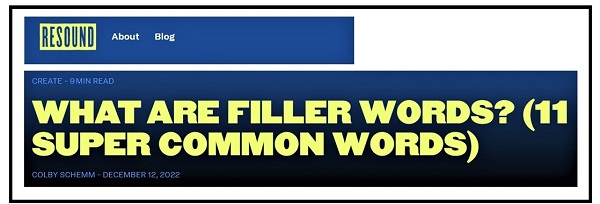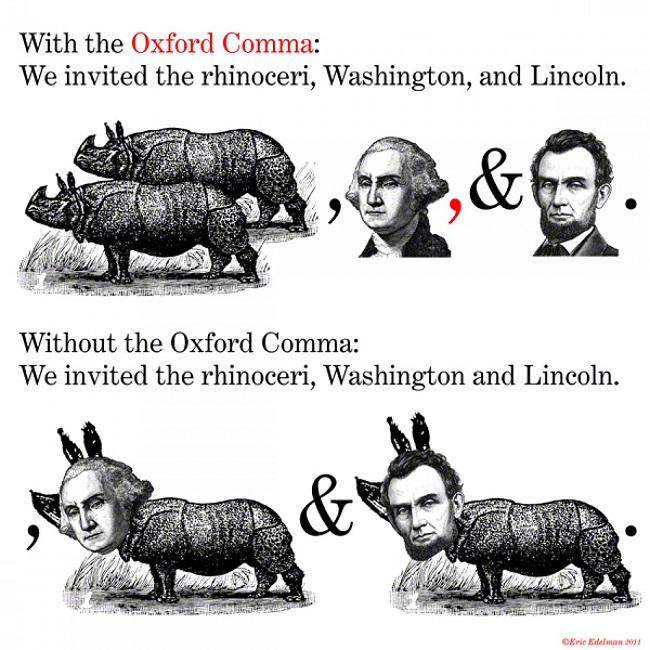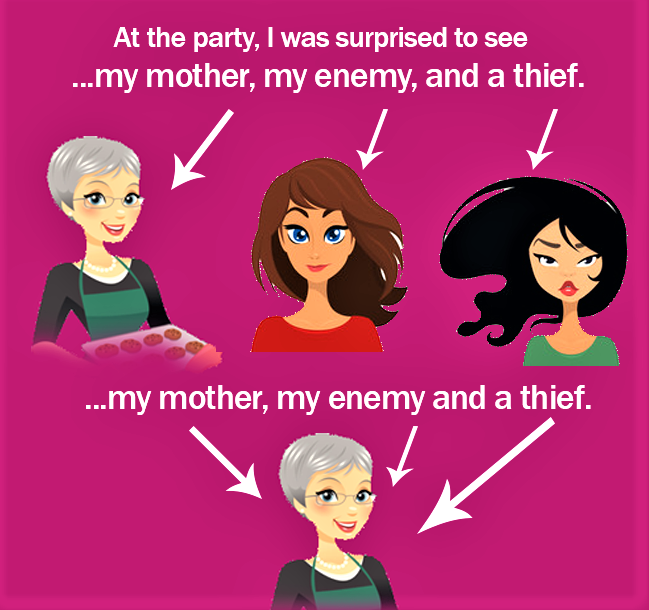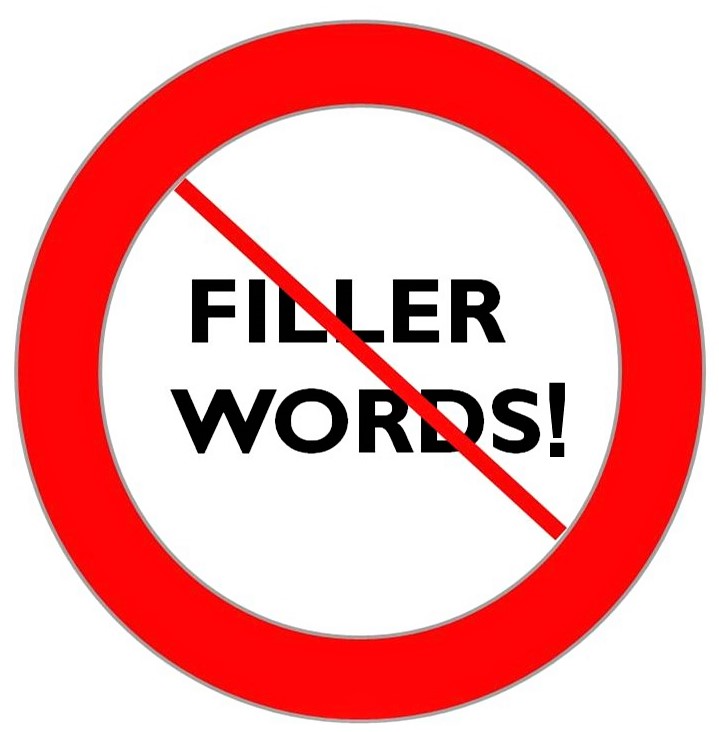This is the sequel (and conclusion) to Part I: Some Words On Words from Wednesday, January 11.

“You know what those are?” my aggravated husband said, pointing to the TV screen.
We were watching the evening news, and a reporter had asked a politician a question.
“What are they, honey?” I said.
“Those are side words” he said, with something of a sneer.
He was referring to words that often start someone’s – often a politician’s – answer (or non-answer) to a question. They’re meaningless and, in some cases, stalling tactics as in, “(Side words side words while I come up with a non-answer) …and it’s clear that the governor hasn’t…”
Here’s how side words work:

News reporter: Mr. Mayor, what is your city doing with regards to your homeless situation?
Mayor: Look. I mean, you know – I’m glad you asked that. And it’s clear that the governor hasn’t…”
The “Look, I mean, you know – I’m glad you asked that” are side words.
You hear them in various combinations all the time.
Here are more side words we also hear a lot:
“That’s a good question” and, “That’s a great question” and, “That’s an excellent question.”
Again, side word stall tactics.
I wish the interviewer would respond, “I know it’s a good question. That’s why I asked it, you moron.”
Another side word I’m hearing more and more lately is “Right?”
News reporter: Mr. Mayor, the governor stated that your city, specifically, isn’t following any of his team’s recommended policies and procedures with regards to your city’s homeless situation.

Mayor: He said that, right?!!
The mayor is agreeing, probably with a wink and a self-satisfied smirk, that yes, the governor did say that – and wasn’t that stupid?
That “right?!!” is also a hook to get the reporter on the mayor’s side.
It turns out that there’s actually another name for side words (though my hub was on exactly the right track). They’re called:

According to this article:

“Filler words are words such as ‘um,’ ‘ah,’ ‘hmm,’ ‘like,’ ‘you know,’ and ‘alright’ that are used to give the speaker time to think, express uncertainty or make something awkward feel less awkward, or as a verbal tick. Filler words are also known as vocal disfluencies or hesitations.
“The most common filler phrases…are ‘needless to say,’ ‘in my humble opinion,’ ‘for what it’s worth…’”
This website:

Listed additional filler words including:

Why anyone would “thank” themselves for “learning” filler words – as the above headline suggested – is a mystery to me.
I discovered many online articles that talked about filler words.
And why articulate people – or those wishing to sound articulate – should avoid filler words. Hence the big, red “No” symbol over the “filler words” image above.
Now we come to the “punctuation” part in the image at the top of this post.
Let’s go back to a sentence from the above Resound article:
“Filler words are words such as ‘um,’ ‘ah,’ ‘hmm,’ ‘like,’ ‘you know,’ and ‘alright’ that are used…”
You see the phrase ‘you know,’ and the comma that follows it?
That’s not just a comma.
It’s…

I’ve been hearing the phrase “Oxford comma” for years, mainly because of the controversy – some of it quite heated – around the pros and cons of Oxford commas.
What I didn’t know was why the comma was called “Oxford.” Other punctuation mark names aren’t preceded by capitalized adjectives, or any adjectives:

Quotation marks are just “quotes,” a semicolon is just “semicolon,” and a period is just “period” (or “fullstop”).
So, why “Oxford”?
My research revealed that the “Oxford” part is as controversial as the use of the Oxford comma itself.
Let’s start with this article:

“The Oxford comma…name comes from the Oxford University Press (OUP), where for over a century it has been standard in the Oxford Style Manual. Sometimes it’s called a ‘serial comma’ and less frequently a ‘Harvard comma’ (from Harvard University Press).”
Not true, says this article:

“The Oxford comma gets its name from being used by the Oxford University Press, but its exact origins are unclear. It’s doubtful the use of an Oxford comma (also called a serial comma) originated at the University of Oxford. If it did, there doesn’t seem to be any proof to back it up.”
There are other explanations for attaching “Oxford” to “comma,” but rather than getting bogged down in all that, let’s move on from the why “Oxford” to the what.
What is it?
The Oxford comma is, as are all commas, a punctuation mark.
In the English language there are multiple punctuation marks – I found articles with numbers ranging from 12 to 26 (more controversy) – but all have the same goal:

“Punctuation fills our writing with silent intonation. We pause, stop, emphasize, or question using a comma, a period, an exclamation point or a question mark. Correct punctuation adds clarity and precision to writing; it allows the writer to stop, pause, or give emphasis to certain parts of the sentence.”
The point of punctuation is to clearly convey a writer’s meaning, and the point of the Oxford comma is the same.
Definition:
The Oxford comma is the final comma in a list, used just before the conjunction, the conjunction often being “and.”
Example:
With Oxford comma: Her favorite foods were chocolate, marshmallows, cake, and chicken.
Without Oxford comma: Her favorite foods were chocolate, marshmallows, cake and chicken.
When I read these two sentences, I see no need for the Oxford comma after “cake.”
But – how about this?

Example:
With Oxford comma: I dedicate this book to my parents, the Pope, and Mother Teresa.
Without Oxford comma: I dedicate this book to my parents, the Pope and Mother Teresa.
Ah-ha! Without the Oxford comma, one might think that “my parents” are the Pope and Mother Teresa!
Awhile back my newspaper, the San Diego Union-Tribune, waded into the Oxford comma fray and invited readers to weigh in. One pro-Oxford comma responder provided this example:
“A wife sent a note with her husband to buy some items after work. She asked for milk, bread, eggs, frozen peas and carrots. When he came home he had one bag of frozen peas and carrots. She said, ‘I wanted a bag of peas and a bag of carrots.’ He said, ‘If you had used the Oxford comma I would have known what you meant.’”
Again – ah-ha!
Fortunately, there is a lighter side to the Oxford comma controversy:



So while there is a lighter side, the company involved in this lawsuit found no humor in the Oxford comma controversy:

The article says that in 2014, three truck drivers sued Oakhurst Dairy, a company in Portland, ME, seeking more than four years’ worth of overtime pay that they had been denied.

Due to the lack of an Oxford comma in a state law, the United States Court of Appeals for the First Circuit sided with the drivers, saying the absence of a comma produced enough uncertainty to rule in their favor. It reversed a lower court decision.
Though three drivers filed the class-action lawsuit, about 75 would share the money – an estimated $10 million.
Here’s the follow-up to the story:

“Ending a case that electrified punctuation pedants, grammar goons and comma connoisseurs, Oakhurst Dairy settled an overtime dispute with its drivers that hinged entirely on the lack of an Oxford comma in state law.

“The dairy company in Portland, ME agreed to pay $5 million to the drivers, according to court documents.
“The relatively small-scale dispute gained international notoriety last year when the United States Court of Appeals for the First Circuit ruled that the missing comma created enough uncertainty to side with the drivers, granting those who love the Oxford comma a chance to run a victory lap across the internet.”
The article noted that the Maine Legislature had “addressed the punctuation problem” in the law.
In summary:
There are those who insist the Oxford comma must always be used; those who insist it never be used; and those who say to use it when clarity is needed.
If you were to ask me about Oxford comma usage, I would say this:
“That’s an excellent question! Look. I mean, at the end of the day, you know – in my humble opinion, to be honest, basically…
“Right?!!”


